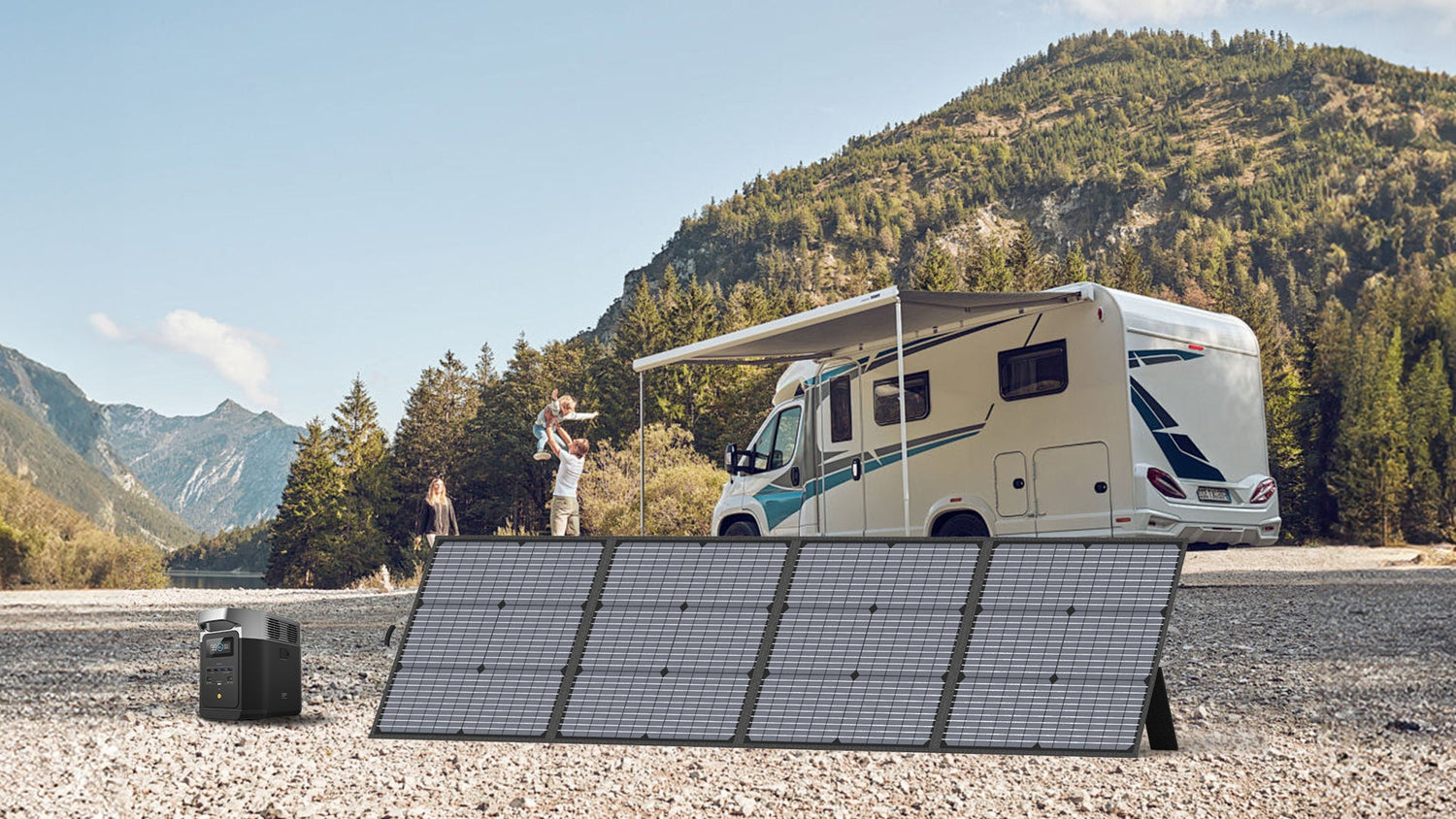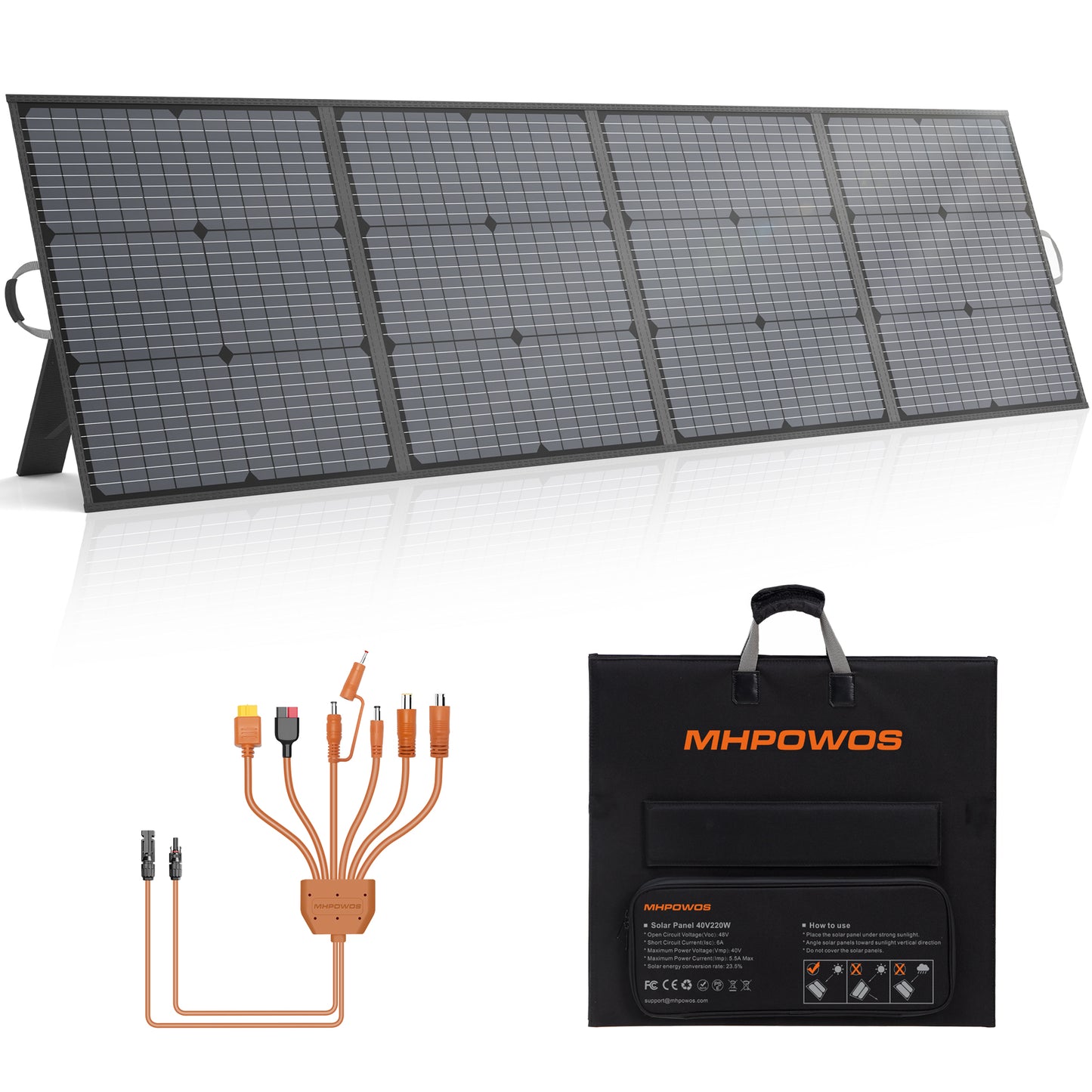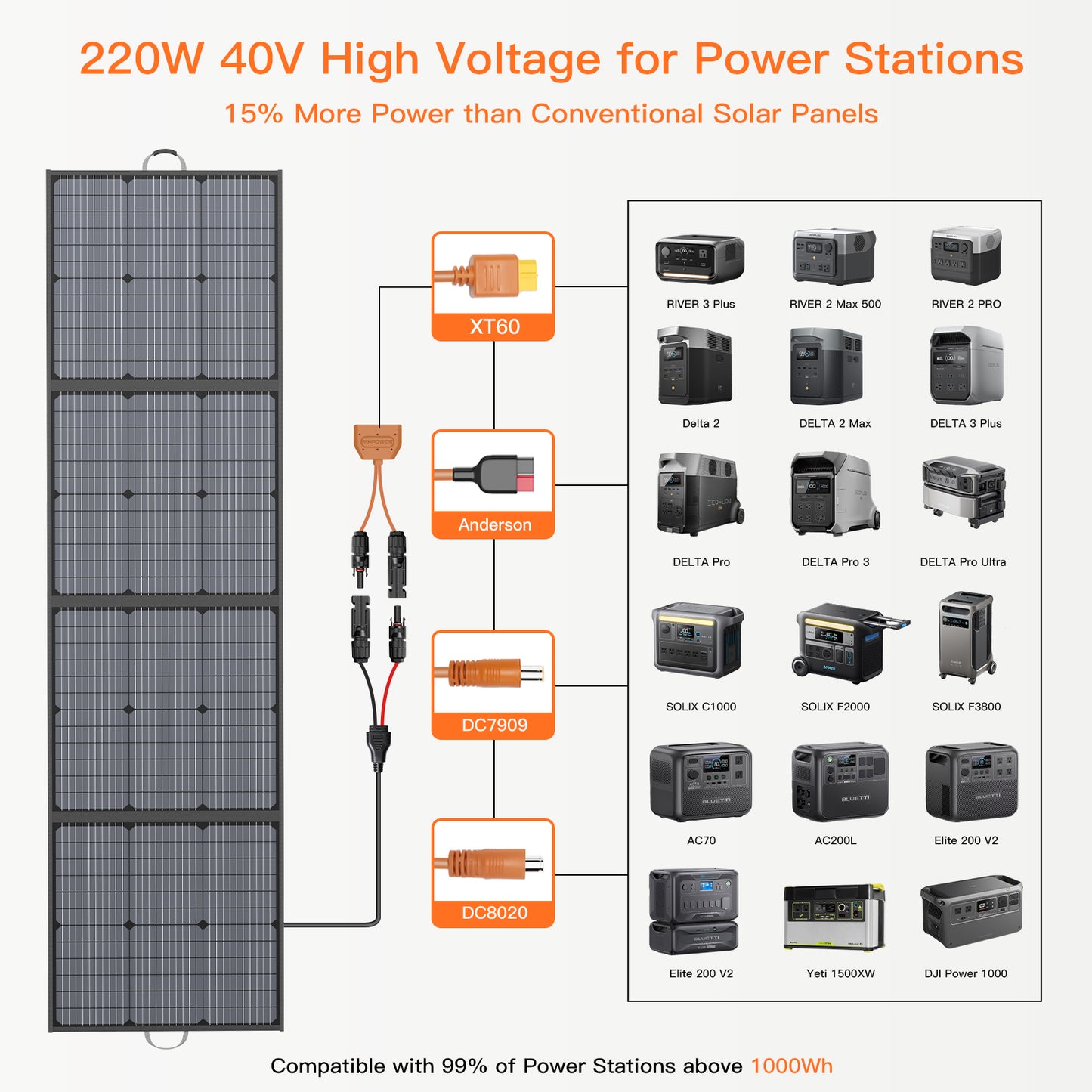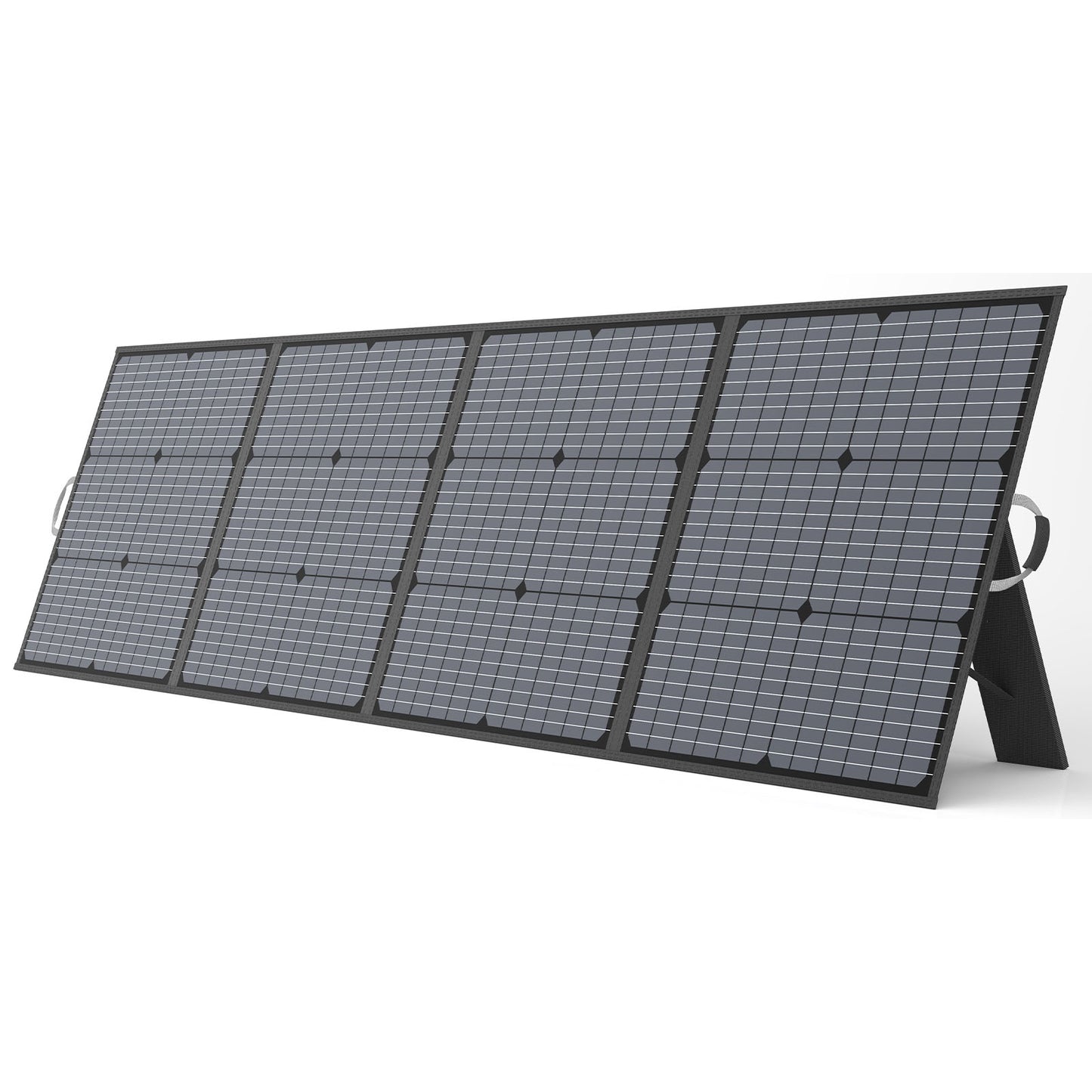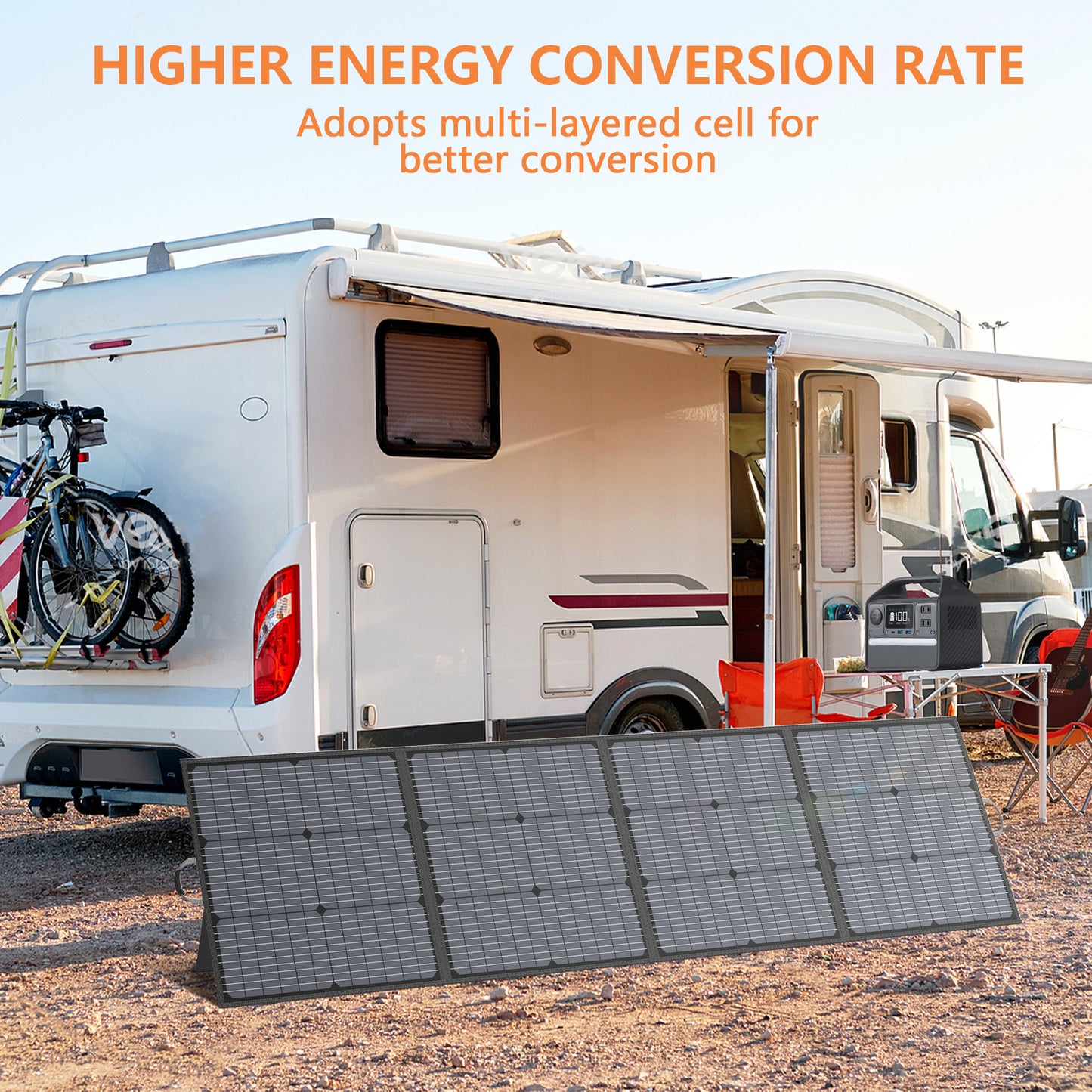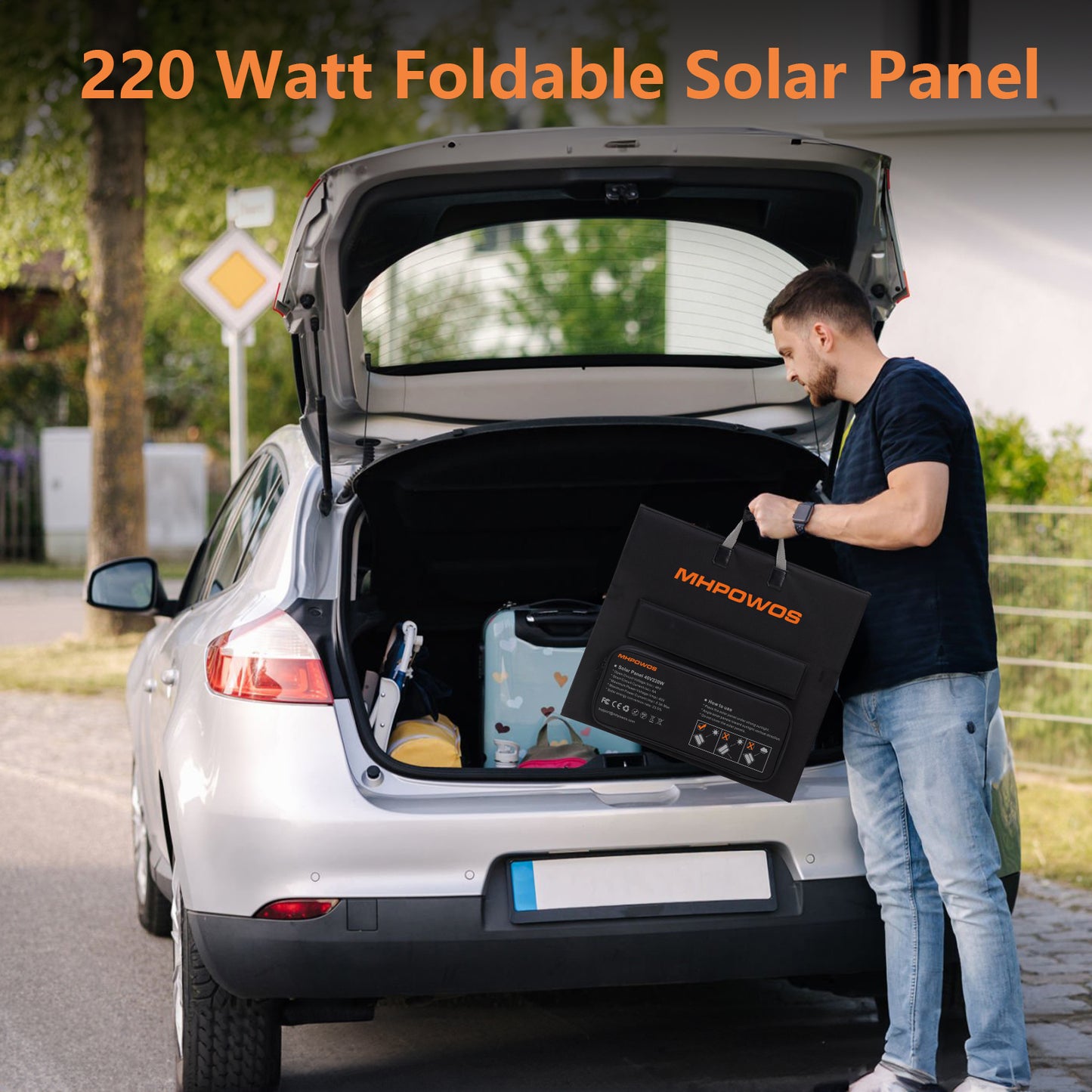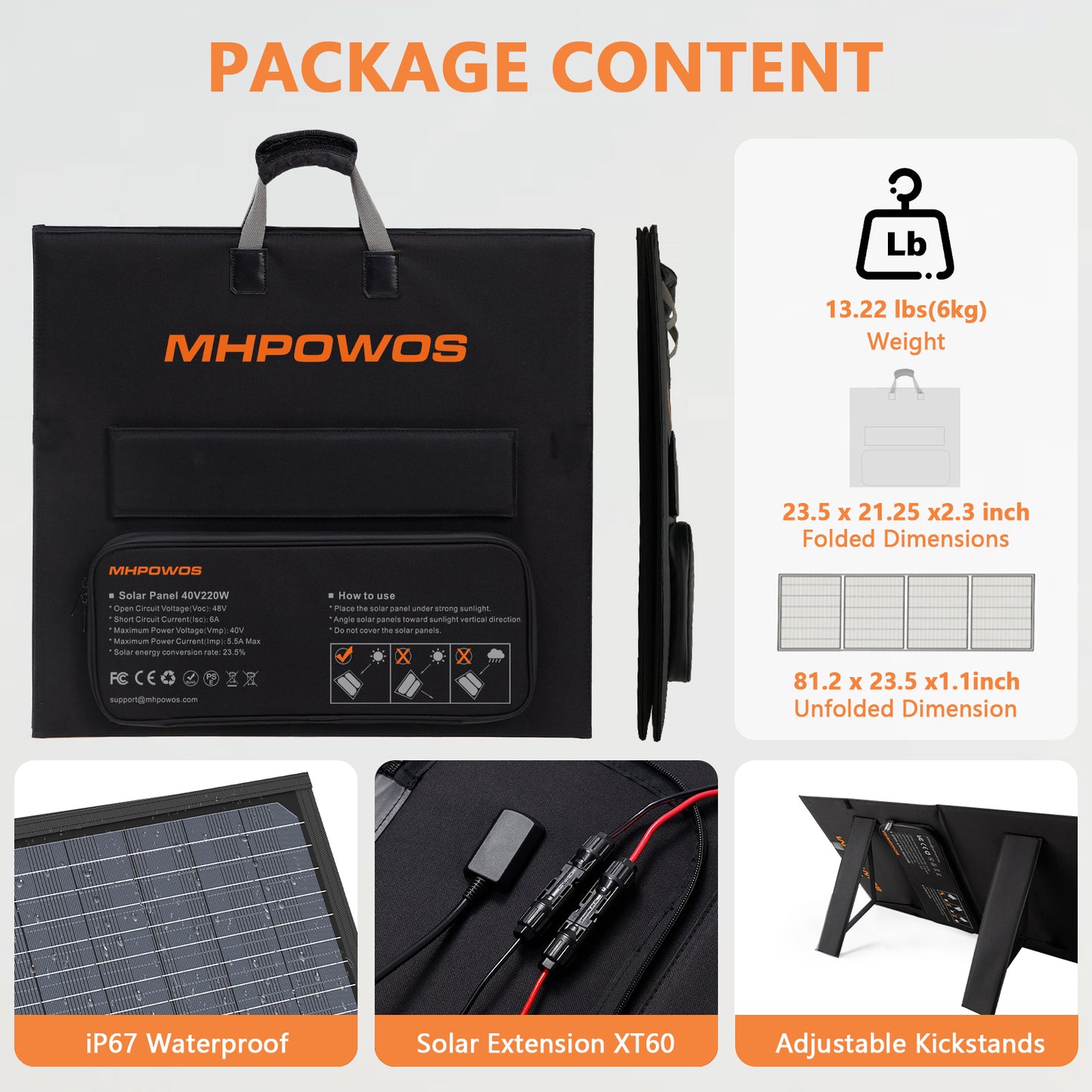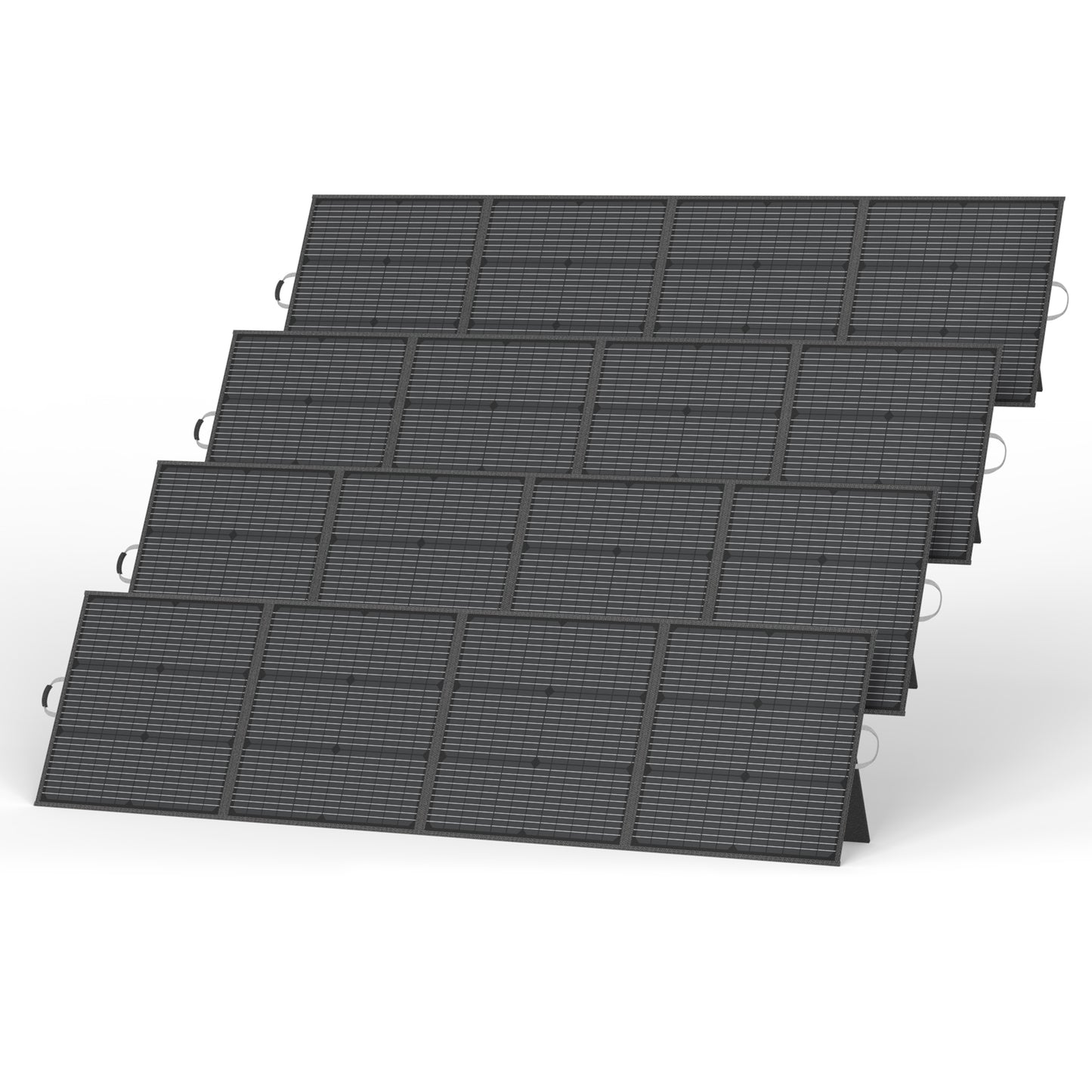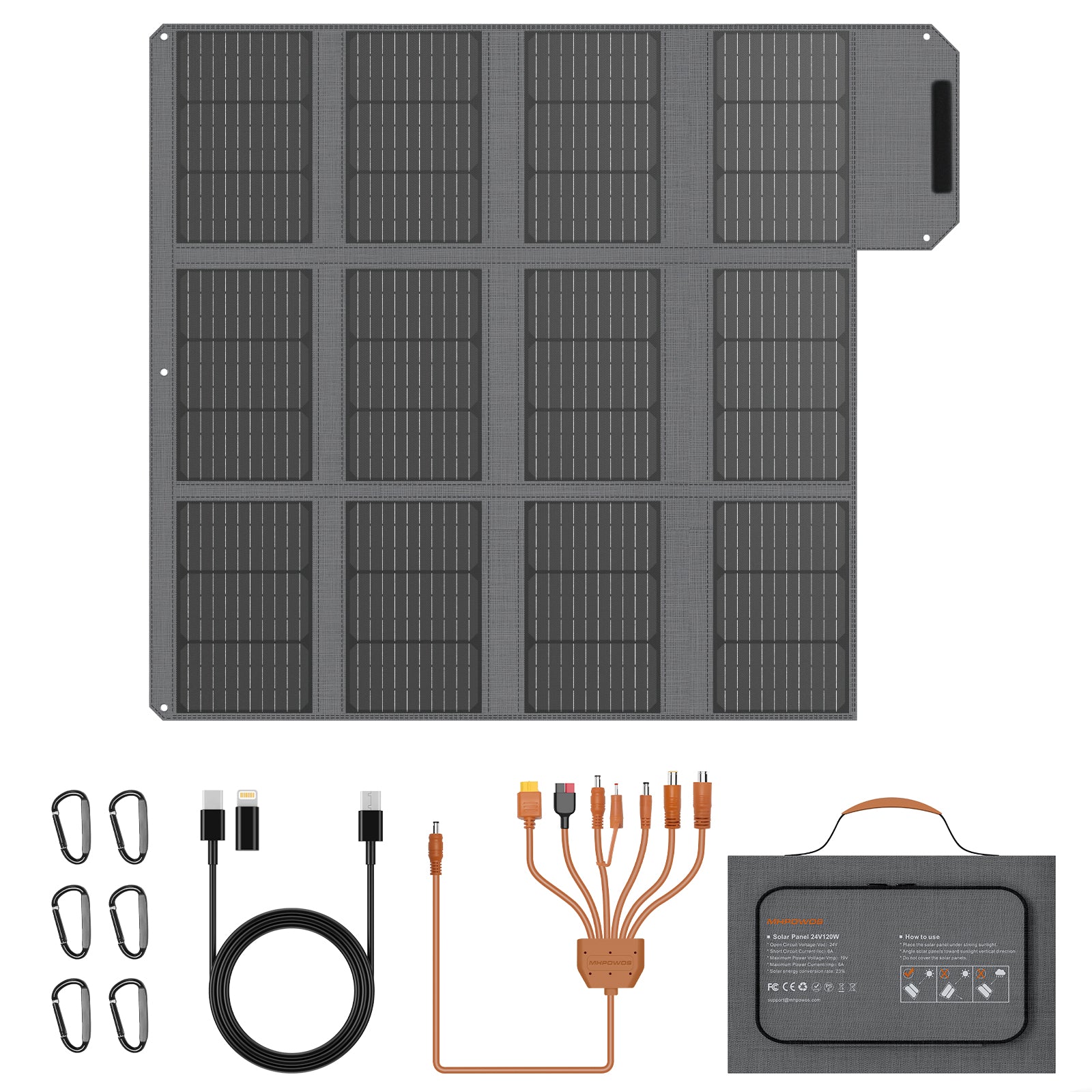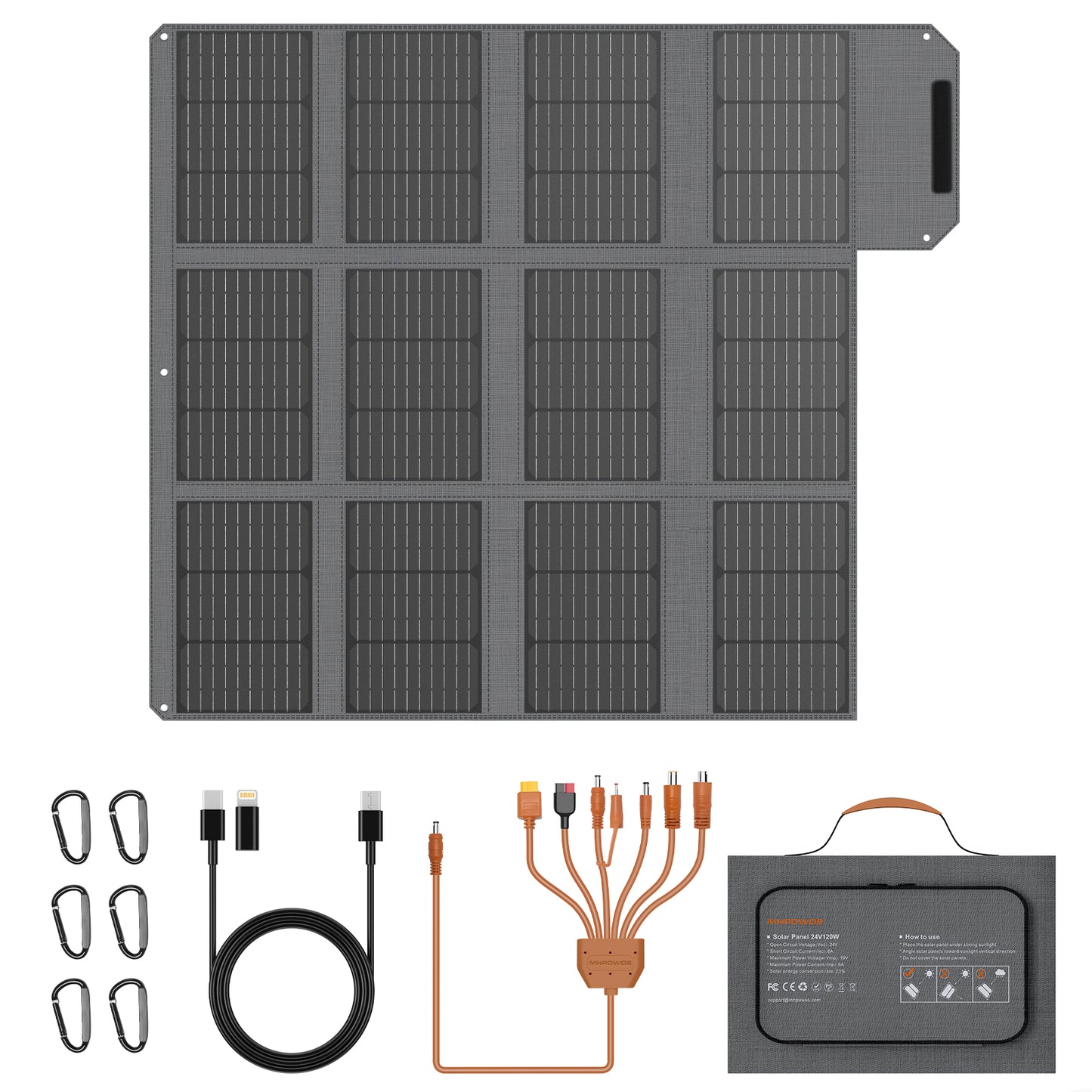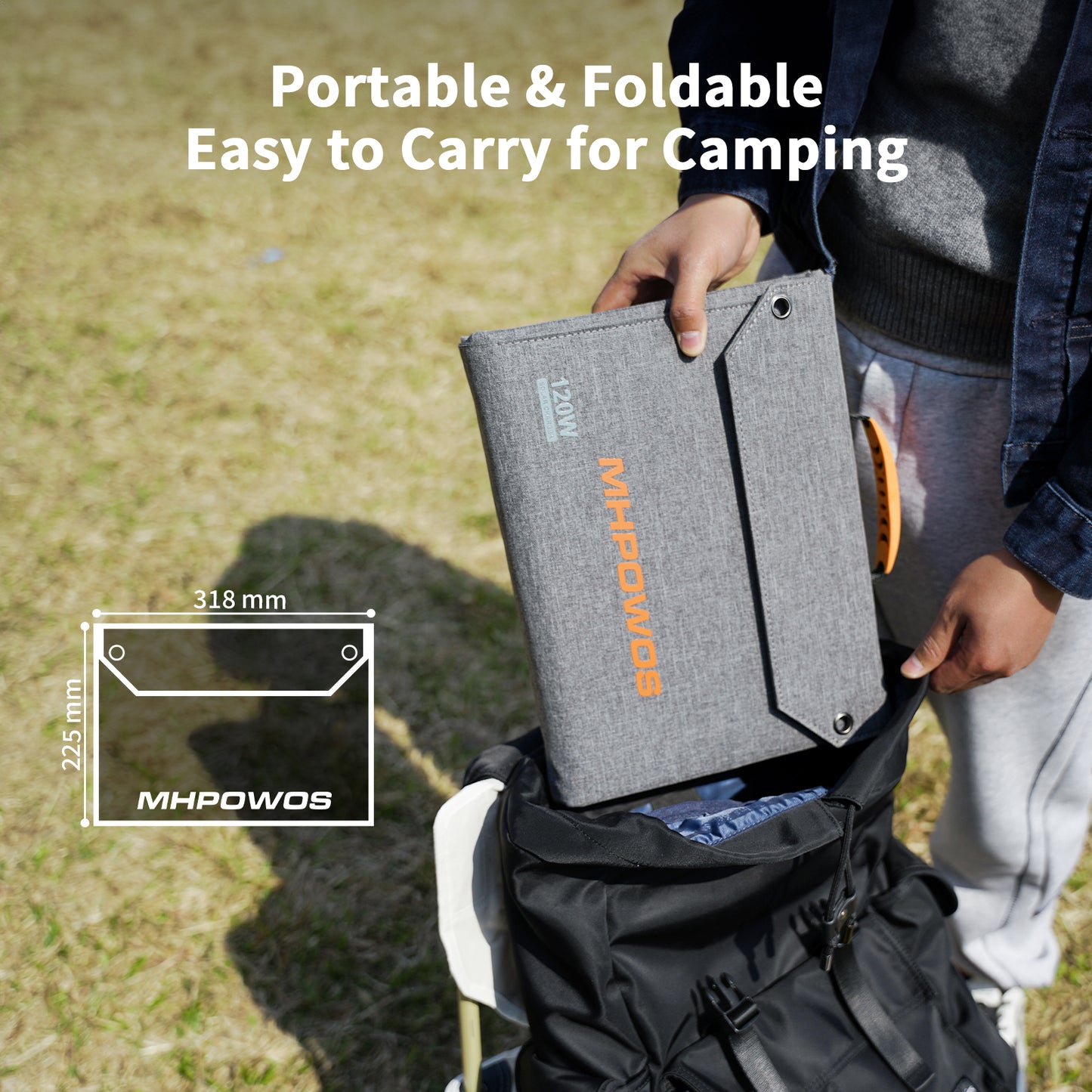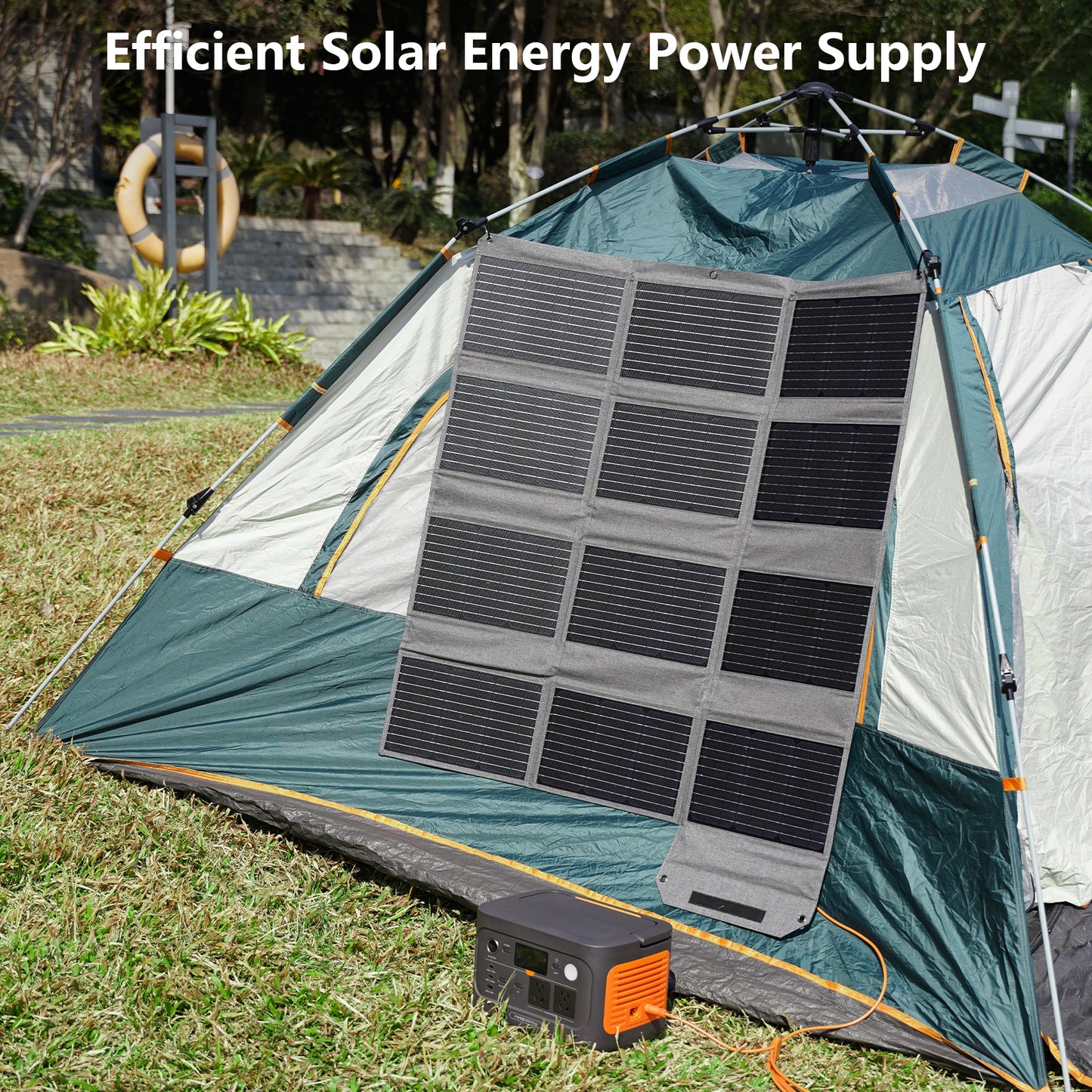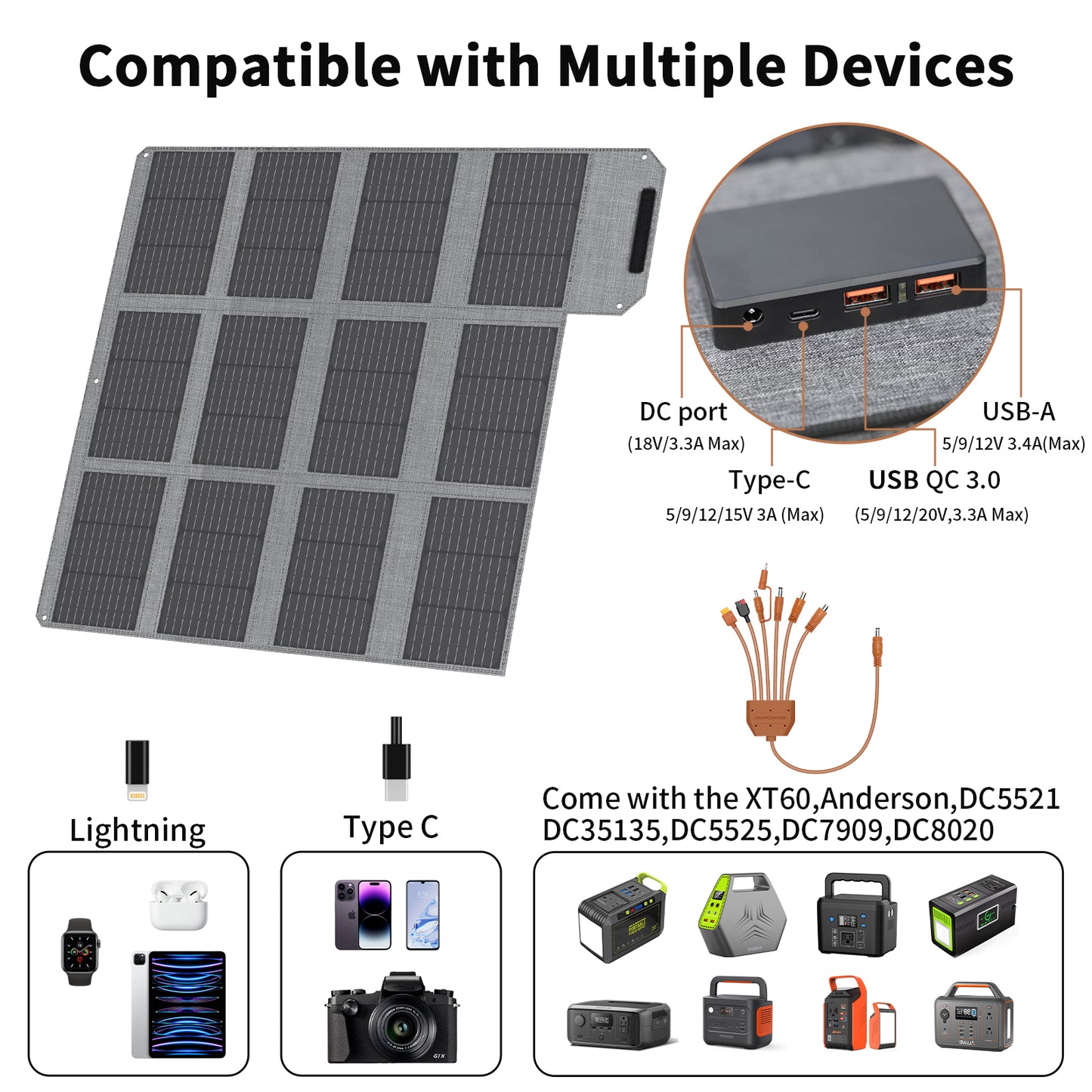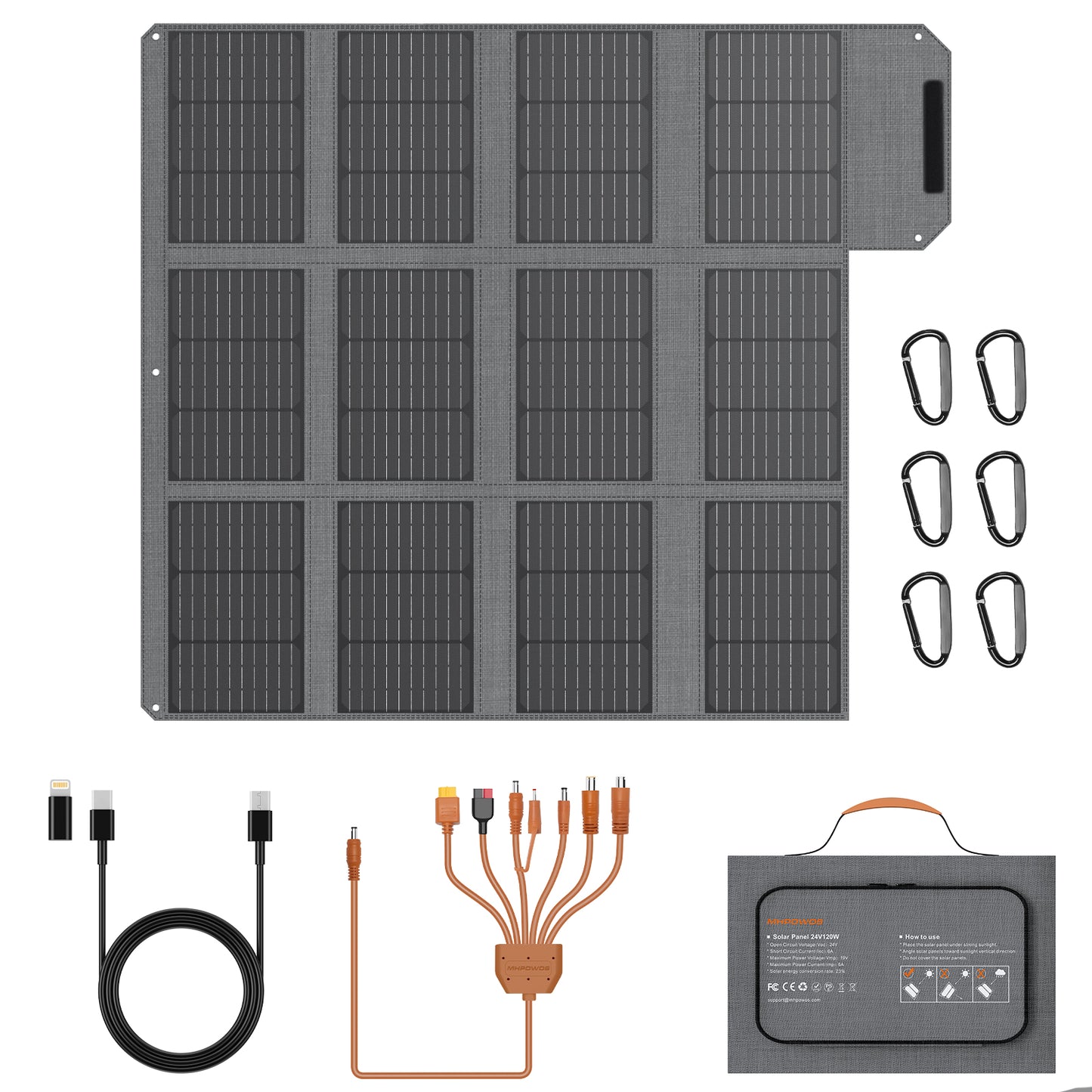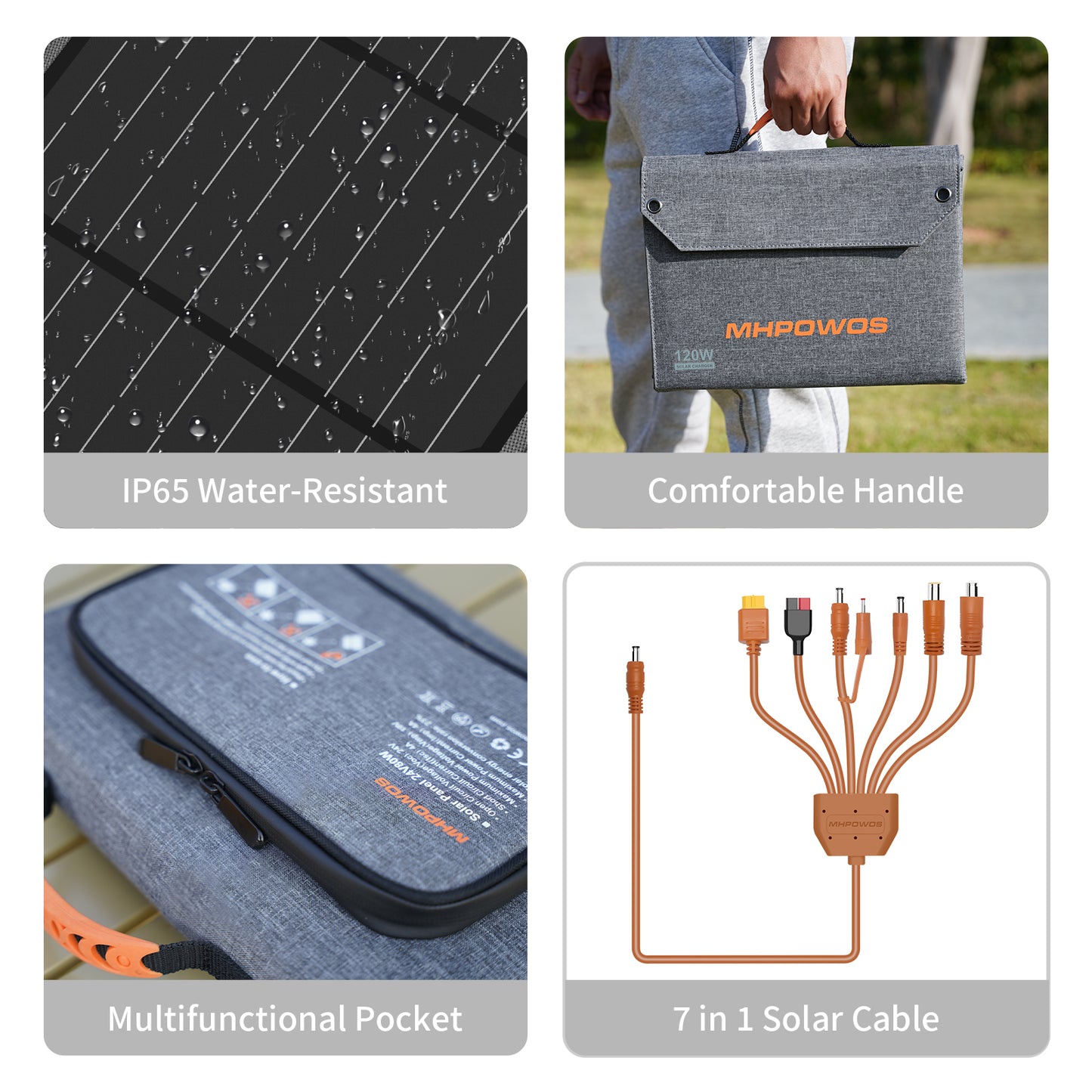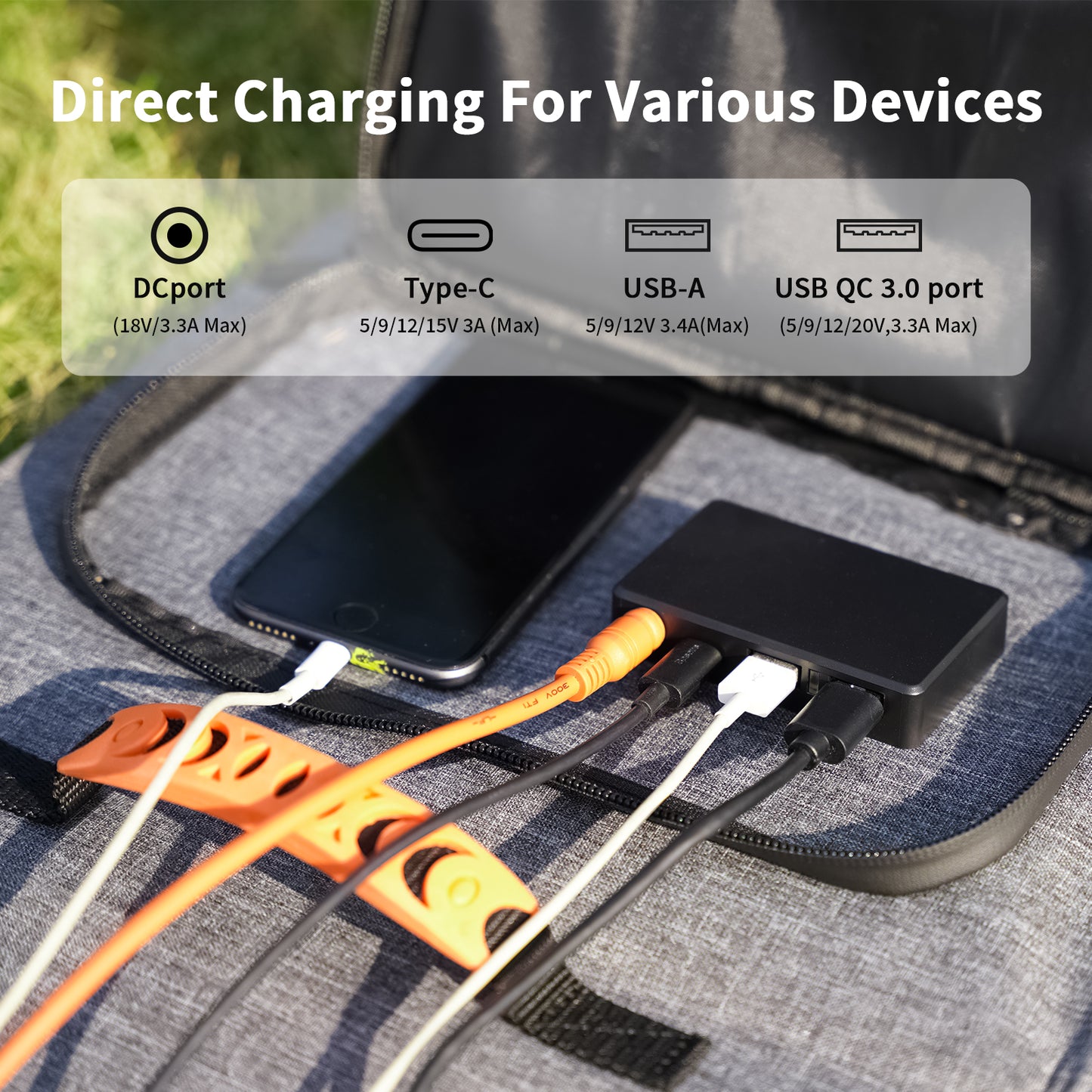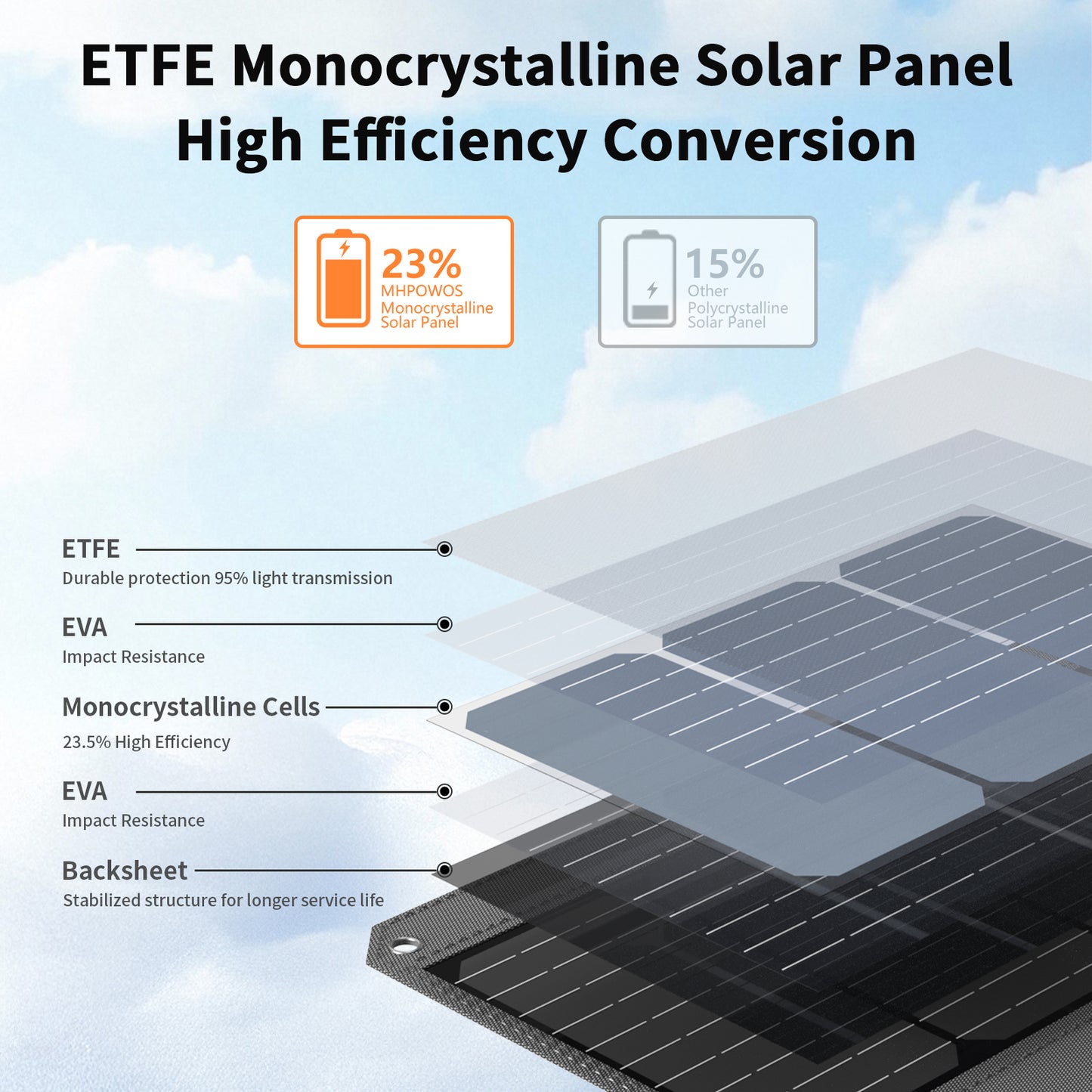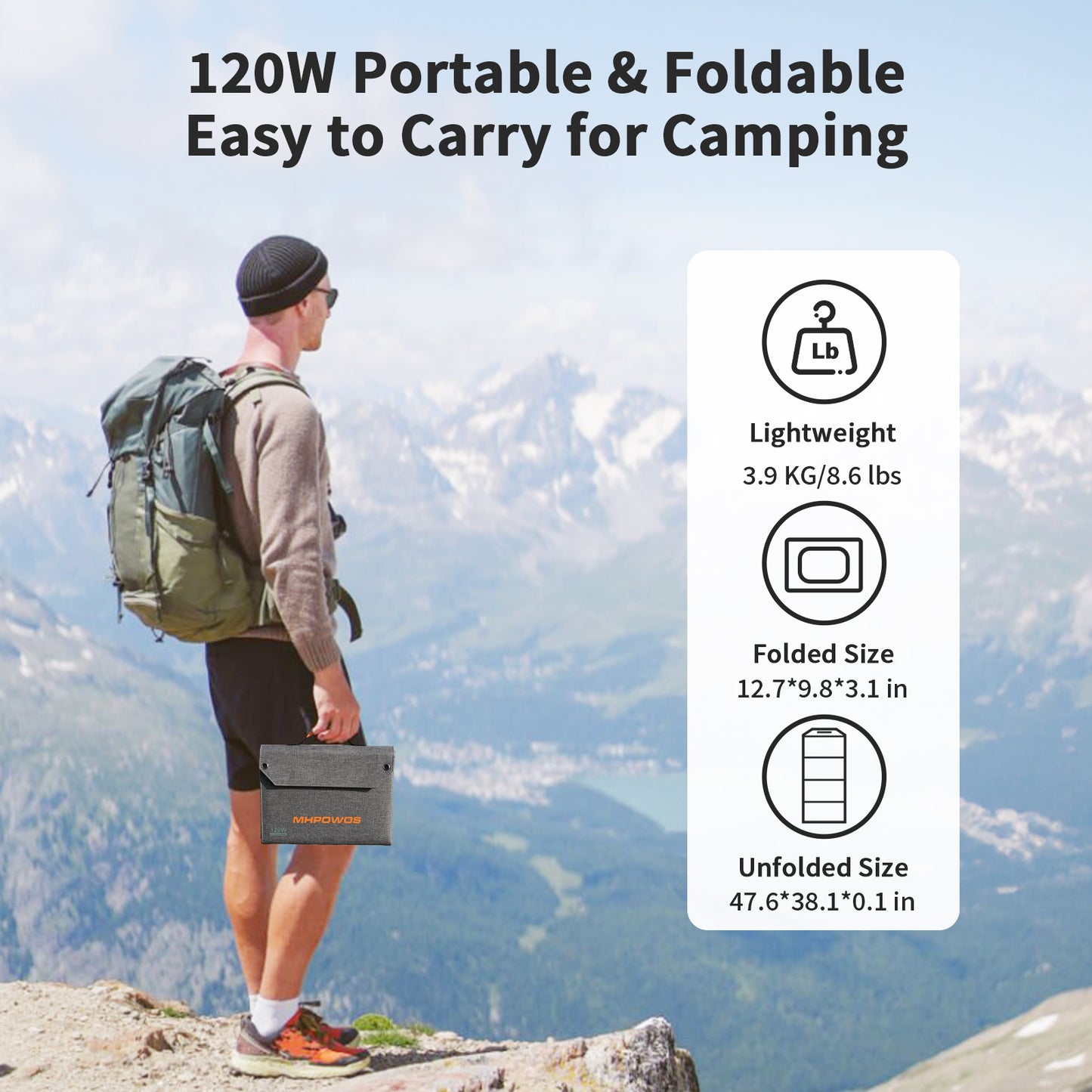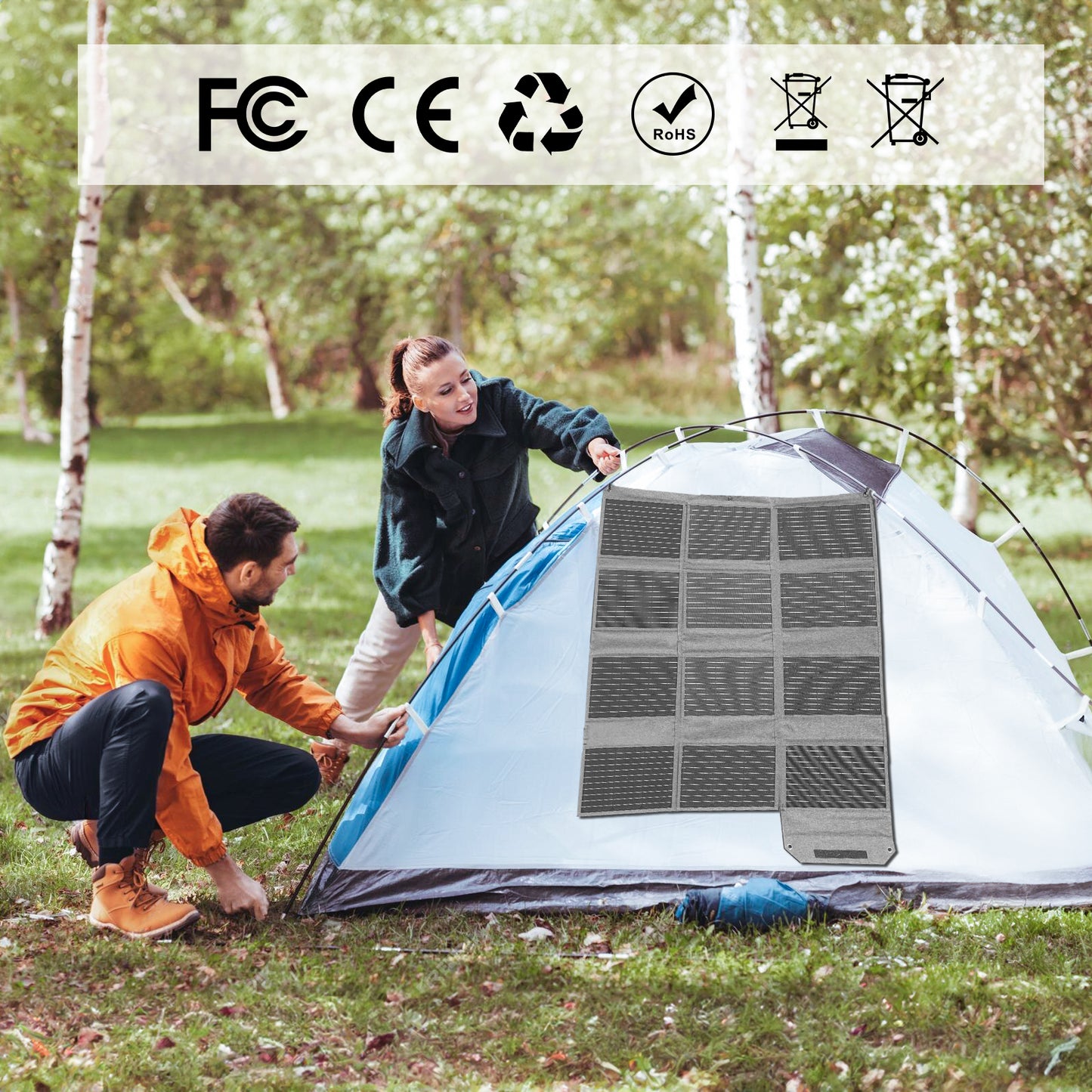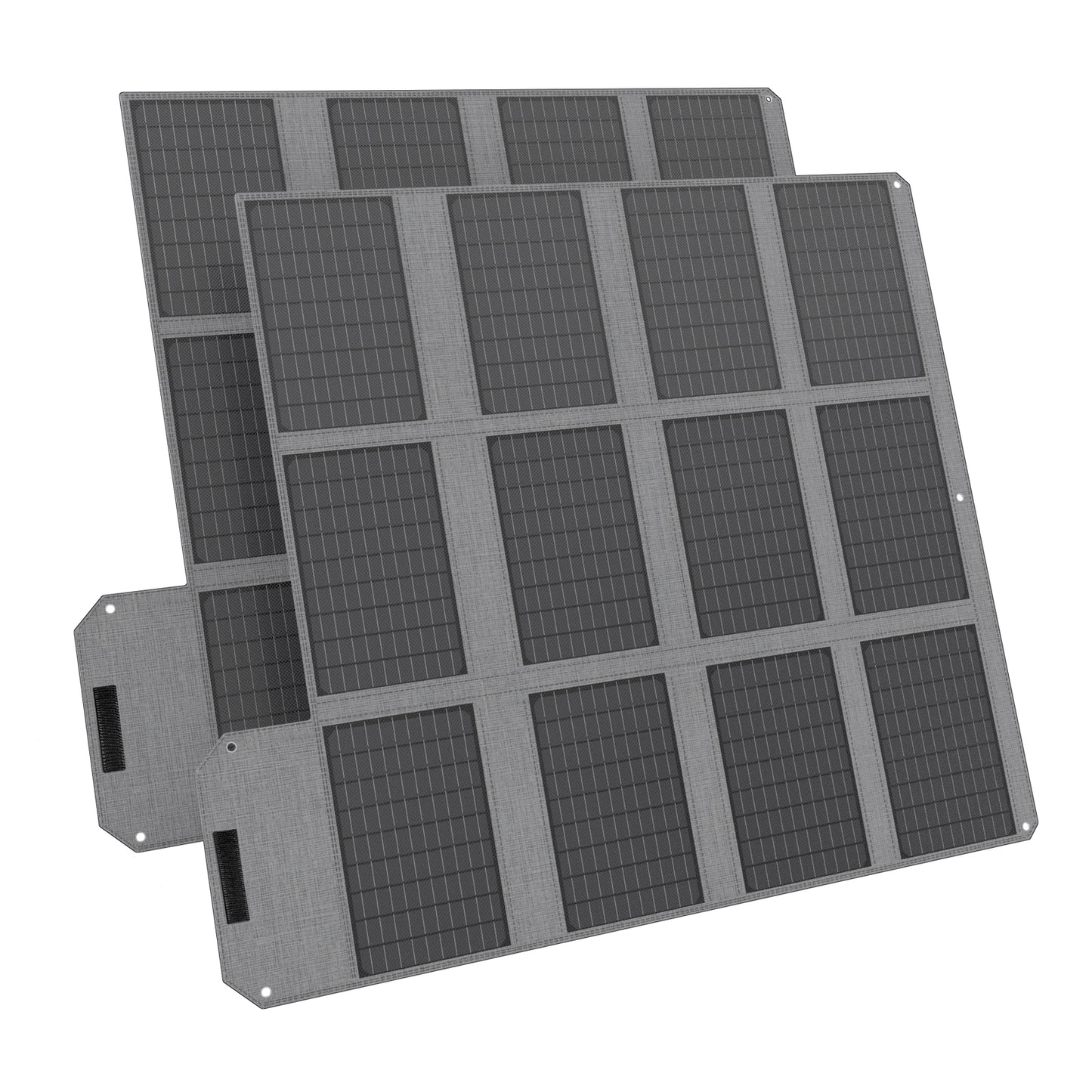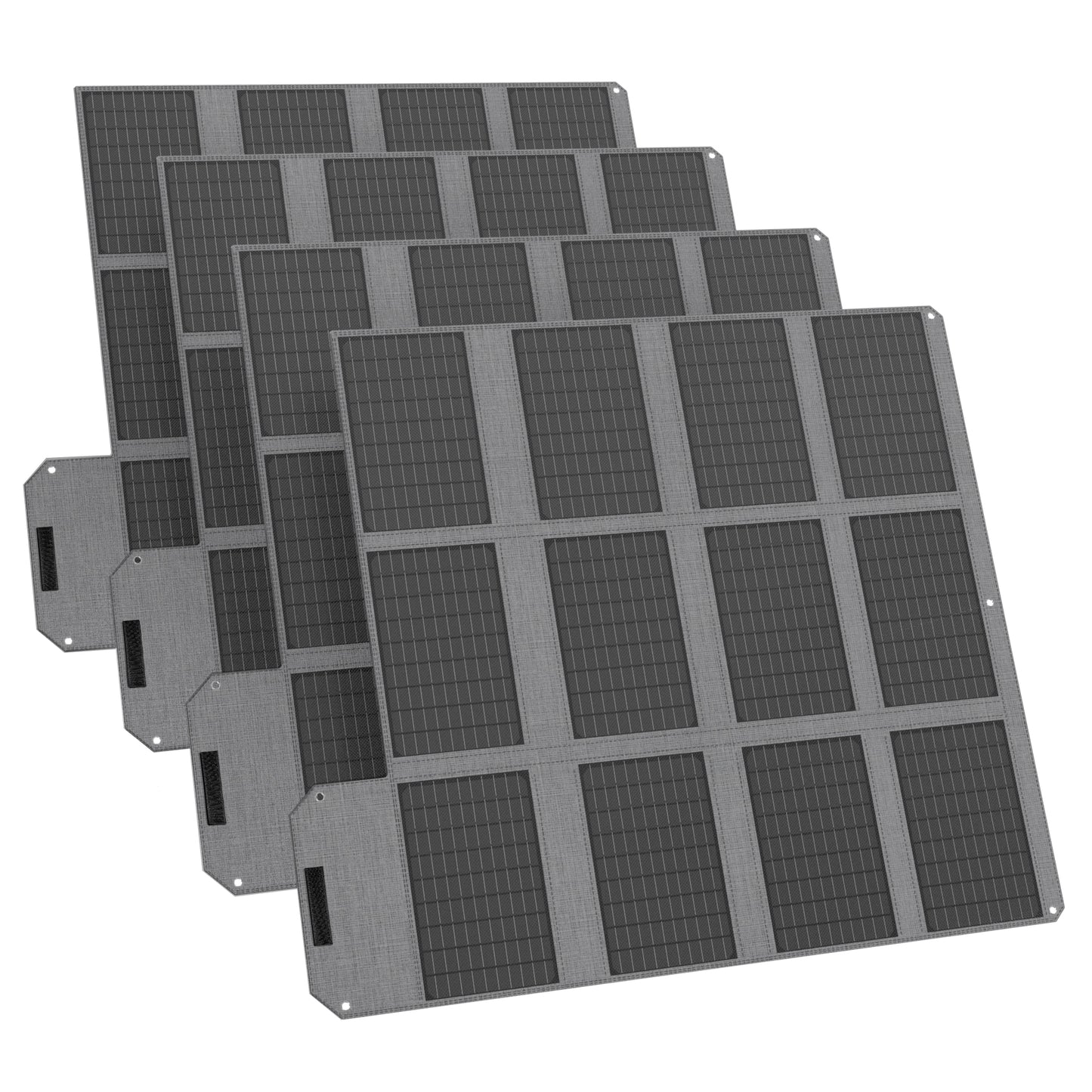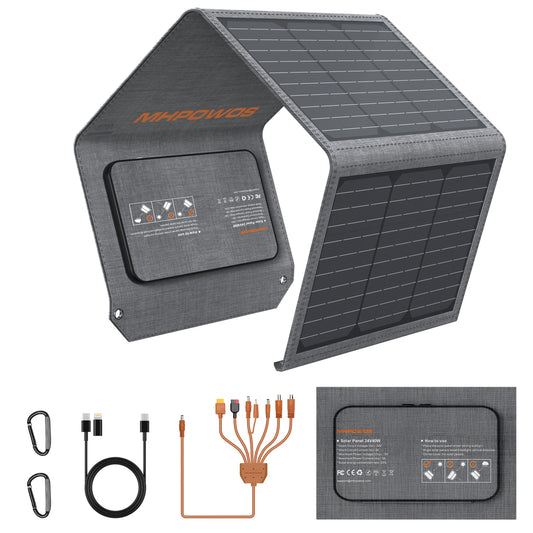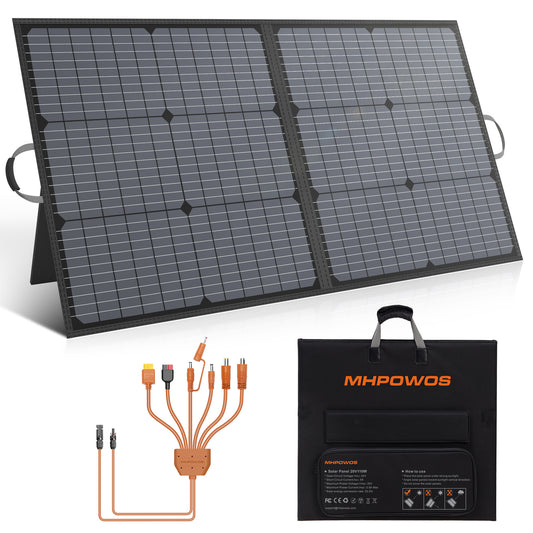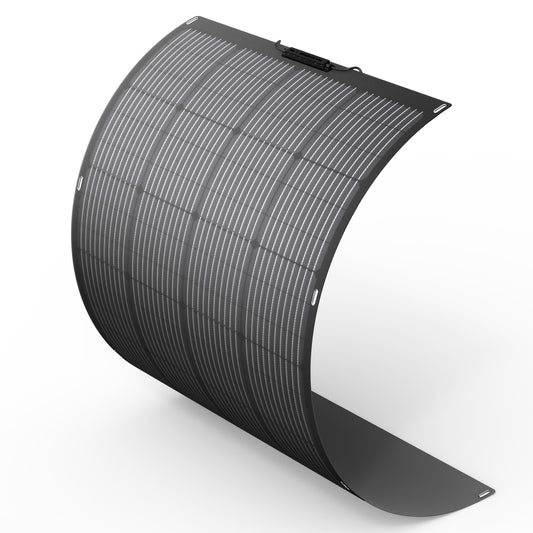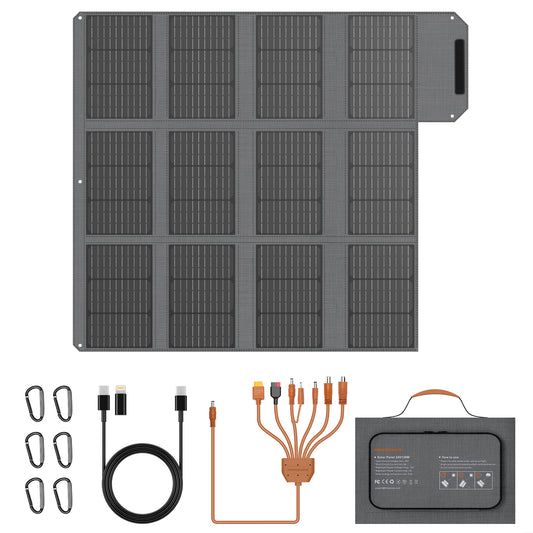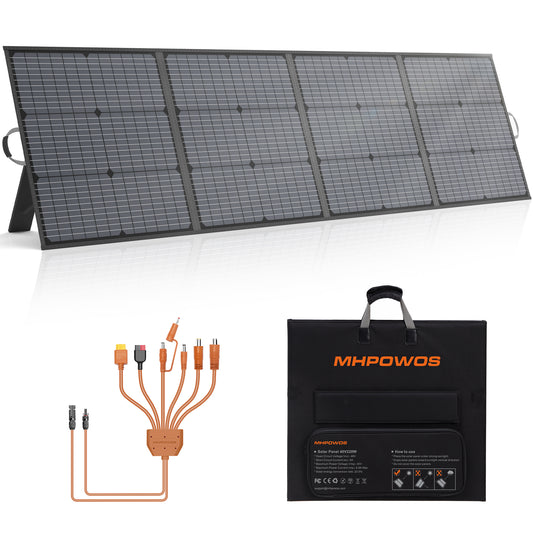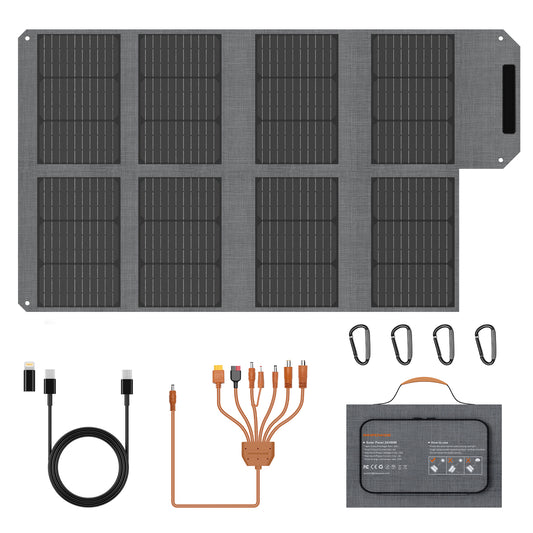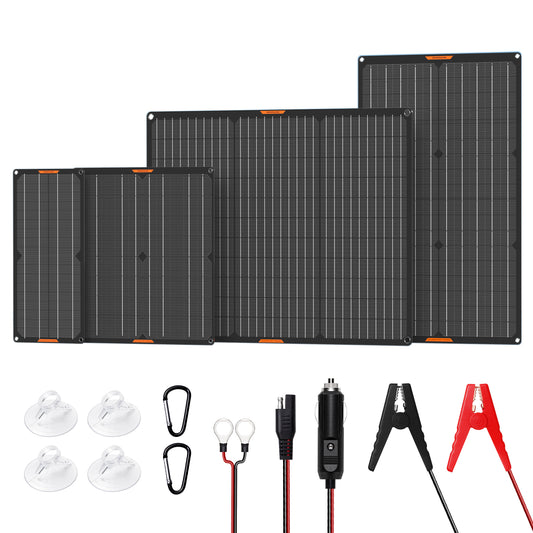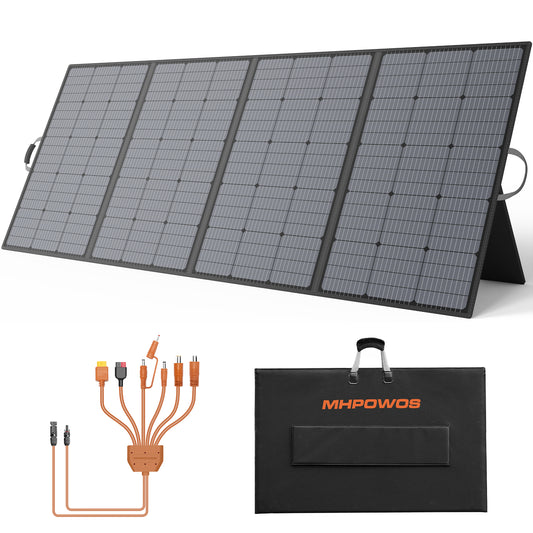
Solar Panel Buying Guide: What You Need to Know
Share
Table of Contents:
Solar panels are a great investment for harnessing renewable energy, reducing electricity bills, and minimizing carbon footprint. This buying guide will help you understand what to look for when purchasing solar panels for your home, RV, or off-grid living.

1. Types of Solar Panels
Monocrystalline: Known for high efficiency and sleek design, these panels are ideal for small spaces but come at a higher cost.
Polycrystalline: Slightly less efficient than monocrystalline but more affordable, making them a popular choice for budget-conscious buyers.
Thin-Film: Lightweight and flexible, these panels are perfect for portable uses but generally have lower efficiency.
2. Efficiency and Power Output
Efficiency: This refers to how well the panel converts sunlight into electricity. Higher efficiency panels are more effective but typically cost more.
Power Output: Measured in watts, this indicates how much electricity the panel can produce. Choose a power output that matches your energy needs.
3. Size and Space Requirements
Consider the available space for installation. Smaller spaces may require higher-efficiency panels to maximize energy production.
4. Durability and Weather Resistance
Look for panels with strong durability and resistance to weather conditions, such as hail, wind, and snow, especially if you live in an area with extreme weather.
5. Warranty and Lifespan
Solar panels generally come with warranties ranging from 18 months. A longer warranty often indicates a higher quality product.
6. Cost and Budget
Factor in the upfront cost of the panels, installation, and additional equipment like inverters and mounting systems. Remember to consider long-term savings on energy bills.
7. Certification and Standards
Ensure the solar panels meet industry standards and certifications for quality and safety, such as IEC and UL certifications.
Conclusion
Buying solar panels is a significant investment, but with the right information, you can choose the best option to fit your needs and budget. Consider the type, efficiency, durability, and warranty of the panels to make an informed decision. Start your journey to sustainable living today by selecting the right solar panels for your energy needs.
Solar panels are a great investment for harnessing renewable energy, reducing electricity bills, and minimizing carbon footprint. This buying guide will help you understand what to look for when purchasing solar panels for your home, RV, or off-grid living.

1. Types of Solar Panels
Monocrystalline: Known for high efficiency and sleek design, these panels are ideal for small spaces but come at a higher cost.
Polycrystalline: Slightly less efficient than monocrystalline but more affordable, making them a popular choice for budget-conscious buyers.
Thin-Film: Lightweight and flexible, these panels are perfect for portable uses but generally have lower efficiency.
2. Efficiency and Power Output
Efficiency: This refers to how well the panel converts sunlight into electricity. Higher efficiency panels are more effective but typically cost more.
Power Output: Measured in watts, this indicates how much electricity the panel can produce. Choose a power output that matches your energy needs.
3. Size and Space Requirements
Consider the available space for installation. Smaller spaces may require higher-efficiency panels to maximize energy production.
4. Durability and Weather Resistance
Look for panels with strong durability and resistance to weather conditions, such as hail, wind, and snow, especially if you live in an area with extreme weather.
5. Warranty and Lifespan
Solar panels generally come with warranties ranging from 18 months. A longer warranty often indicates a higher quality product.
6. Cost and Budget
Factor in the upfront cost of the panels, installation, and additional equipment like inverters and mounting systems. Remember to consider long-term savings on energy bills.
7. Certification and Standards
Ensure the solar panels meet industry standards and certifications for quality and safety, such as IEC and UL certifications.
Conclusion
Buying solar panels is a significant investment, but with the right information, you can choose the best option to fit your needs and budget. Consider the type, efficiency, durability, and warranty of the panels to make an informed decision. Start your journey to sustainable living today by selecting the right solar panels for your energy needs.
